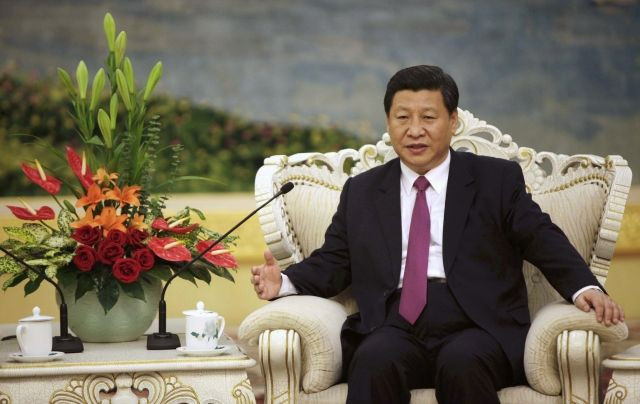China in 2014: Looking Forward, China Puts Food Safety And Government Debt At Top Of Priority List

Beijing has wrapped up the country’s Economic Work Conference, an annual meeting of Chinese policymakers where goals and reforms are established for the upcoming year. At the end of closed-door sessions, China has announced the six top priorities for 2014.
According to news blog Shanghaiist, which quotes Bank of America analyst Ting Lu, China’s big priorities for 2014 are as follows:
1.Increase national food security and safety
Coverage of China’s rampant food safety issues has been widespread. Among the issues: misleadingly labeled meat, such as rat sold as lamb, "gutter oil" reused as cooking oil, and dirty ice in fast-food joints.
2. Improve industry structures, develop new growth drivers, and cut excess capacity.
Modernizing and adapting China’s infrastructure and industrial structures, like manufacturing factories, will open doors for efficiency in production and in energy, in turn helping alleviate air pollution and other environmental waste caused by coal burning and other industrial processes.
3. Control and tackle local government debt risks.
According to audits of local governments, local debt has become “out of control” and can potentially result in a bigger financial crisis than the U.S. housing market crash in 2008. Local governments have come under fire by Chinese netizens over wastefulness, funding expensive projects that don’t have a pay-off. This goal is closely linked to President Xi Jinping’s crackdown on corruption of local officials, often accused of using state funds for personal use, like cars, extravagant banquets and other amenities. Xi’s austerity plans, launched last year, will likely continue next year.
4.Promote balanced growth in different regions.
China’s impressive economic growth has lifted many citizens out of poverty and made many middle-class Chinese wealthier. Unfortunately, growth has not been seen by all. As some provinces continue to thrive and grow to be hubs for specific industries, others have been neglected and left behind. The wealth divide within China has been a point of tension among citizens. According to a poll of Internet users by the state-run publication China Youth Daily, 75 percent of respondents said that the wealth gap and growing wage disparities is the biggest threat to China.
5.Improve social welfare with focus on providing jobs to college graduates and workers laid off in industries with excess capacity, and increasing supply of subsidized housing.
Jobs for college graduates have become increasingly difficult to find for Chinese citizens. Though the Chinese are becoming increasingly educated, recent studies show that the availability of appropriate jobs does not meet demand. This past year, which has been dubbed as one of the worst years to graduate college in history, only 28 percent of Beijing’s graduates of 2013 were able to find jobs.
6.Raising the level of openness by speeding up talks on free trade zones and investment treaties.
This year China launched its first free-trade zone (FTZ) in Shanghai, which was seen as a major step in financial reforms. Twenty-five Chinese and foreign companies have already been approved to operate in the zone. After Shanghai, the northern city of Tianjin and the southern province of Guangdong have lobbied for similar zones. China’s overarching economic goals are steadfast in remaining focused on Chinese-style socialism, with “pro-active fiscal policy” and “prudent monetary policy.”
© Copyright IBTimes 2024. All rights reserved.






















